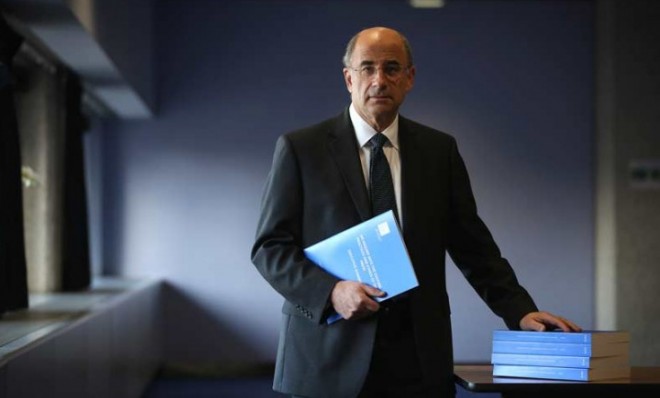The U.K.'s Leveson report: Should journalists be regulated?
A British judge suggests an industry watchdog to prevent a repeat of abuses like the phone-hacking scandal that brought down Rupert Murdoch's News of the World tabloid


A free daily email with the biggest news stories of the day – and the best features from TheWeek.com
You are now subscribed
Your newsletter sign-up was successful
British judge Brian Leveson, who investigated News Corp.'s phone-hacking scandal, issued his long-awaited report on Thursday, recommending the formation of an independent regulator with the power to fine media outlets and journalists for ethics violations. Leveson said the government shouldn't set up the watchdog. "It would be up to the press to come forward with their own body," he said. Prime Minister David Cameron, who asked Leveson to prepare the report in the aftermath of a scandal that forced the closure of Rupert Murdoch's 168-year-old News of the World tabloid, told Parliament he agrees with Leveson's recommendation, but opposed the idea of passing laws to establish a watchdog. Do journalists need someone looking over their shoulders, or would that be an assault on freedom of the press?
This would be disastrous for the cause of freedom: The behavior of Murdoch's reporters was "odious," says John Gapper at Financial Times, but that's no reason to rein in press freedom, which a free society requires. This is a "a vital, scary moment" for democracy. If Cameron follows Leveson's recommendations, the U.K. will head down "a slippery, yet well-trodden, slope... to the landscape of the Soviet Union or China."
"The law, Fleet Street and a free press"
The Week
Escape your echo chamber. Get the facts behind the news, plus analysis from multiple perspectives.

Sign up for The Week's Free Newsletters
From our morning news briefing to a weekly Good News Newsletter, get the best of The Week delivered directly to your inbox.
From our morning news briefing to a weekly Good News Newsletter, get the best of The Week delivered directly to your inbox.
Something must be done: It's a bit unfair to accuse Leveson's supporters of wanting "to crush the freedom of the press," says Tom Chivers at Britain's Daily Telegraph. "They might simply believe Lord Justice Leveson when he says that statutory underpinning is the only way to make independent regulation work." This is a complex issue, and "everyone has legitimate worries." Fear-mongering won't get us anywhere; what we need is a reasoned debate about what to do.
"Stephen Fry: 'Cameron is up Rupert Murdoch's bottom'"
Privacy is as precious as press freedom: The bottom line here, says Zoe Margolis at Britain's Guardian, is that unethical journalists "wreaked havoc on the lives of innocent people" by hacking into their cellphones, trampling their privacy in the process. If that means the media need some supervision, so be it. The press "needs to be judged not just on its veracity, or on its ferociousness in holding those in power to account, but also on how it treats those it has imposed upon."
"The victim: 'A great step in the right direction'"
A free daily email with the biggest news stories of the day – and the best features from TheWeek.com
Harold Maass is a contributing editor at The Week. He has been writing for The Week since the 2001 debut of the U.S. print edition and served as editor of TheWeek.com when it launched in 2008. Harold started his career as a newspaper reporter in South Florida and Haiti. He has previously worked for a variety of news outlets, including The Miami Herald, ABC News and Fox News, and for several years wrote a daily roundup of financial news for The Week and Yahoo Finance.
